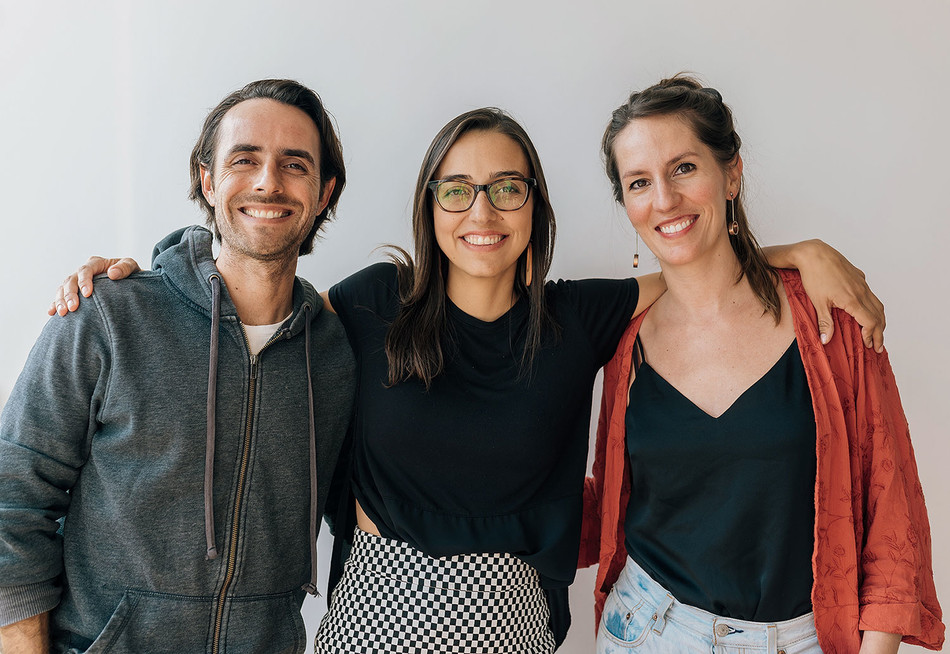When Pilar Figueroa graduated from college in Mexico City with a degree in international business, she struggled to find stable and satisfying work. After unfulfilling stints at a government office and a bank, she ended up working at a convenience store. Then she discovered Laboratoria, an education nonprofit that trains women in Latin America for technology jobs. “I started out with zero hope that I would be successful in the technology world, but as it turns out it’s my true passion,” says Figueroa, who today is a product manager focused on data analytics for an Atlanta-based company.
Figueroa is one of more than three thousand women to have graduated from Laboratoria, which since 2014 has been attempting to close the gender gap among Latin America’s tech professionals. “Women are overrepresented in low-skill jobs, underrepresented in high-skill jobs, and left out of amazing opportunities because of deeply rooted stereotypes,” says Mariana Costa Checa ’13SIPA, who cofounded the organization with Rodulfo Prieto ’13SIPA and Gabriela Rocha ’13SIPA. “We serve women who either haven’t had access to a quality education or for other reasons haven’t been able to make the most of their talent and potential.”
Laboratoria, headquartered in Lima, Peru, and also operating in Mexico, Chile, Brazil, Colombia, and Ecuador, offers a six-month “boot camp” intensive with tracks in Web development and user-experience (UX) design and then assists students with job placement. “We have students everywhere from the Andes to northern Mexico,” says Costa, the CEO and a Lima native. “We also have displaced students from Venezuela who are able to find a new path in a new country.”
Costa, Prieto, and Rocha met as graduate students at Columbia’s School of International and Public Affairs. “We all came to Columbia looking for a problem to solve,” says Prieto, Laboratoria’s chief product officer, who is originally from Venezuela. After graduating, Costa and Prieto briefly ran a digital-services agency in Lima, but they found it difficult to recruit female technology staffers. “As we grew our team, gender diversity was lacking,” says Prieto. “We also realized that the best talent had acquired their skills in nontraditional ways, like through coding boot camps.”
To create their own pipeline for women tech workers, Costa and Prieto went on to found Laboratoria with Rocha, who is now the organization’s chief operating officer, working out of Mexico City. The boot camp, originally started as an in-person program with fifteen students in Lima, now offers fully remote learning and graduates some 700 students from across Latin America each year. Tuition is $3,800, but students are not required to start paying until after they graduate and find their first technology jobs.
In addition to teaching coding and design, Laboratoria’s boot camp is set up to instill greater confidence, a solid work ethic, and the ability to collaborate. “The technical skills were huge, but the soft skills we developed were also top-notch,” says Figueroa. “Laboratoria helped me find my purpose, gave me the ‘punch’ I needed to trust myself, and taught me how to demonstrate my talent even though I was a beginner.”
Laboratoria is currently fundraising in an effort to expand its offerings while keeping them affordable, with a goal of graduating 1,500 women a year by 2025. The founders plan to branch out to other countries and to introduce tracks beyond Web development and UX design. Recently, the nonprofit launched a pilot program called Laboratoria+, which invites practicing professionals to take part-time classes and network. “We like to foster a mindset of lifelong learning,” says Prieto.
As more technologists graduate from its boot camp and find work, Laboratoria hopes that companies will begin to adjust expectations around hiring and start to realize that the best candidate for a job isn’t always the person with the flashiest résumé. “Companies are used to recruiting in the same ways and often rely on referrals from within their networks, which makes professional mobility harder for people outside of those circles,” says Rocha. “So much talent gets wasted when qualifications are judged solely on someone’s background, the university they went to, and the people they know.”
This article appears in the Spring/Summer 2023 print edition of Columbia Magazine with the title "Tech Support."




